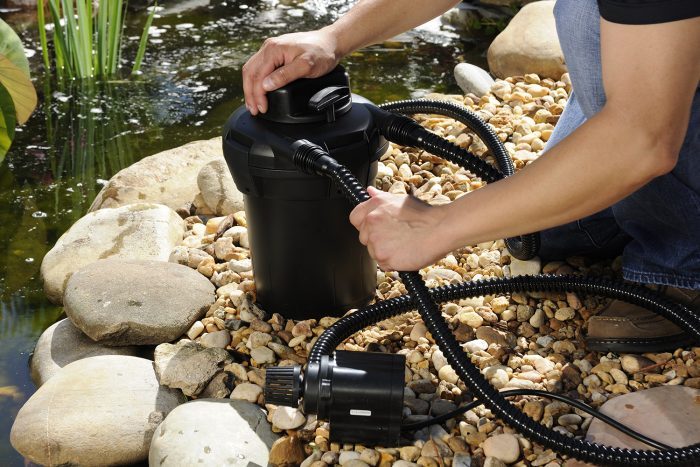Chemicals. For many health-conscious individuals, the word is treated like an expletive — something disdainful, unnatural, toxic. It’s no wonder that there are dozens of swimming pool systems that are purported to be “chemical-free.” Most of these come under a great deal of scrutiny by pool maintenance professionals. Pool mineral ionizers are supposed to be an alternative for pool sanitization, but there is quite a bit of discussion over their efficacy. Are ionizers good or bad? Unfortunately, the answer is not quite that simple.
Is a Pool Mineral Ionizing System Really Chemical-Free?
There is a huge problem in the marketing of anything as chemical-free. Hank Green, founder of EcoGeek.org, may have expressed it best. In a video on his YouTube channel, he rants, “Dear people who complain about the ‘chemicals’ that they’re exposed to, EVERYTHING IS CHEMICALS. Water, your body, omega-3 fatty acids, raspberries — chemicals.”
So, no, swimming pool ionizers are not chemical-free. They create a chemical change in the water by releasing copper and/or silver ions. But more importantly, they are not really chlorine-free. Most pool owners who do have a pool mineral ionizer system still have to shock the water with chlorine on a regular basis.
Are Pool Mineral Ionizers Safer Than Chlorine?
Generally, when someone asks if a product is chemical-free, what they are really asking is, “Is this safe? Is this healthy?” And in and of themselves, pool mineral ionizers are safe. They do not introduce anything harmful to the water; the amounts of copper or other metals will not have a high enough concentration to cause any health problems (although the copper may cause stains on the pool surface). However, the disinfection properties of mineral ionization are suspect.
In a study of a wide range of pool sanitizers, ionizers showed minimal effectiveness against bacteria or algae. One reason for this is that they do not oxidize the water, which is an important step in preventing algae growth. They also work slowly, decreasing the efficiency at killing bacteria. So when it comes to keeping water clean and safe, it seems clear that pool mineral ionizers cannot compare to standard chlorine-based systems.
Are There Pros to Having a Pool Mineral Ionizer System?
According to the science, it seems obvious that an ionizing system is not the best alternative. But there are pros to having one, even though you may still need to use chlorine along with it. Mineral ionizers do not affect other pool components. Chlorine does have a corroding effect, so pools with ionizers may not need equipment replaced as often. Additionally, people with asthma or COPD may appreciate being able to reduce their dependency on chlorine.
The answer to whether pool ionizers are good is not black and white. While there may be situations where they are beneficial, they do not eliminate the need for chlorine and cannot be touted as an alternative pool sanitizer.
For more information about pool maintenance and safety, visit Pool Doctor of the Palm Beaches, where their knowledgeable team posts blogs, podcasts, and videos for pool owners.


